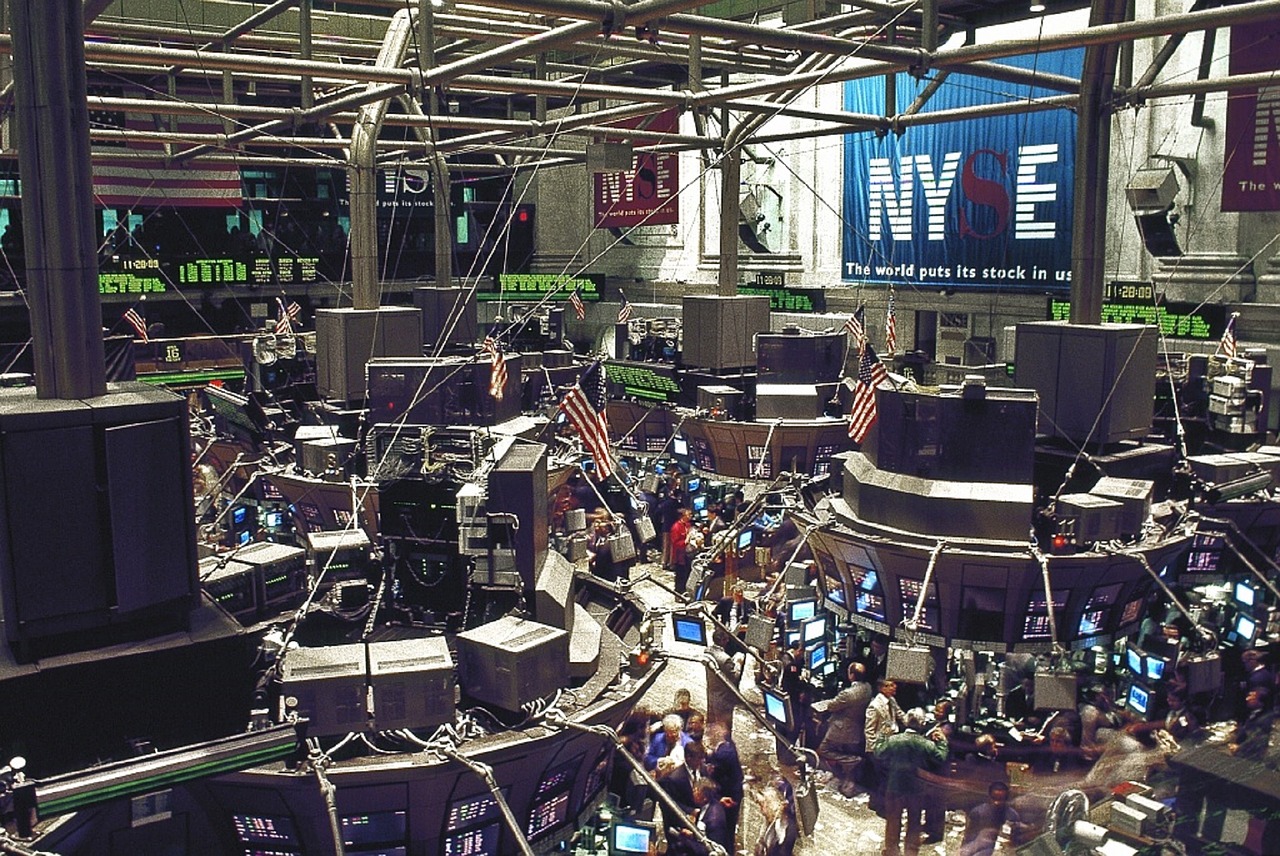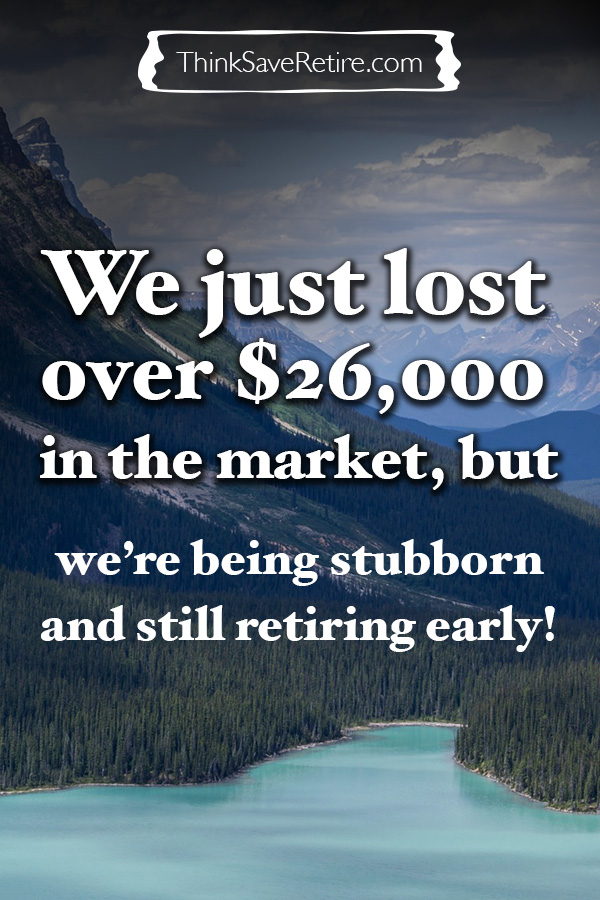Making retirement work even though market weirdness

My wife and I are being stubborn - there is no way that we're going to let market conditions this year (and the last half of 2015) effect our planned retirement target - end of 2016 for me and February of 2017 for my wife.

But, we are also facing the cold hard facts: we probably won't have as much money going into retirement that we had initially thought. We made our cash projections in early 2015 when the market was doing fairly well. Our estimates were conservative, but certainly not THIS conservative!
Then, the latter half of 2015 hit and put a stop to the delicious gravy train that investors giddily ate up for several years. Okay, so things were returning back to "normal" - or correcting, if you will. No big deal. And that continued through the end of the year.
And thus far into 2016, things have become even worse. We had the worst 4-day stretch to begin a calendar year in history. And plummeting oil prices are continuing to send stocks straight down.
And to all this, I only have two words: Who Cares!

We don't give a flying whip about the market downturn. In fact, going into retirement in a down market will make its eventual (and historically "guaranteed") upswing that much sweeter. We might have accidentally timed this whole thing incredibly well. Better for the market to go through its weirdness this year - when we are still working - than next - when we aren't.
Still, we will not have as much money as we had planned on quittin' day. What now? For the record, I've detailed our post-retirement goals in case you missed it. The tl;dr version: We are selling everything, buying an Airstream RV and traveling the country full time with our dogs in tow.
What to do with less money going into retirement
Essentially, there are three things that we could do in response to the market's bearish growls. It all comes down to the same principles that any early retiree thinks about most - increasing income and reducing expenses. Same stuff, different day.
1. Work longer - Though we wholeheartedly reject the idea of working longer, it is an option and falls squarely in the increasing income category. Working longer at steady, well-paying jobs could definitely add lots of additional green to our stash.
2. Find odd-jobs - After retirement, there is always the option of finding things to do while on the road, or even finding remote work that we can do with an internet connection, another increasing income strategy. We're talking part-time work, here - nothing full time. After all, the goal is to escape full time jobs, not simply replace a full time job with another.
3. Work camp more - Work camping is ingenious. It's a deal where campers work 15 to 20 hours a week for the campground in exchange for a free campsite that usually includes electric, water and sewer - hello reducing expenses! Essentially, this means that campers live rent-free while work camping. If you are camping on a budget, it's a great deal, and work camping gigs are available all around the country. Some even pay you a small hourly wage in addition to a free camp site.
4. Curtail our "local consumption" spending - As we travel, we would like to visit local coffee shops and breweries every now and again to experience a little bit of the culture as well as support local businesses. While we probably will do this some, we may not choose to kick back a beer at a local brewery or cup of Joe at a local coffee shop quite as often - further reducing expenses.
Our planned retirement adjustments
We anticipate taking a little from columns 2, 3 and 4 from above. While we had planned to work camp anyway, we may look for more opportunities fairly soon after we start into our new lifestyle to help keep our costs down. In addition, I may look for some remote blogging work as I travel and maybe even before we officially retire. This will help generate some additional cash on a monthly basis and keep us from withdrawing too much from our portfolio, at least in the first couple of years after we call it quits from full time work.
Remember, the formative early retirement years are the first few right after retirement. If we can keep our stash well maintained and relatively level through this period, we significantly increase our chances of living out the rest of our lives on the investments that we have built today.
There are any number of options to bump up our income a bit more or reduce expenses, but there are two primary elements of our retirement that we won't sacrifice on:
Our Airstream - This will be our full time home and there is no way that we'd sacrifice on this cost by getting a lower quality model. We want a used, well-maintained Airstream that's move-in ready with a clean interior and exterior, working appliances and functional plumbing. If things are outdated a bit on the inside, that part is fine - we can fine-tune the aesthetics to make it our own as we go and as finances allow.
Our truck - This sucker will pull our home across the country for years to come, so we naturally want the best that money can buy. We definitely aren't looking for a brand new truck, which could set us back $40 or $50k for a well-equipped diesel towing machine. We are thinking more in the $30k price range and 2008 to 2010 model years. A Dodge Ram 2500 would do the trick.
What say you? Has the downturn in the market forced your hand into making changes to your anticipated post-retirement lifestyle? Have you considered pushing your date back?